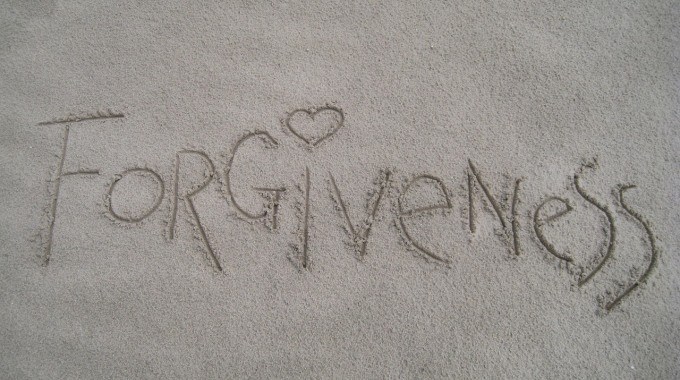
30 Sep learning to forgive
It’s there, in the middle of the Lord’s Prayer. “Forgive us our trespasses [sins], as we forgive those who trespass [sin] against us” is planted in the center of our most important prayer. The language might not be familiar to a newcomer – who today says “trespass”? – but however you say it, Jesus meant us to take this prayer seriously.
Learning to forgive is perhaps the most difficult demand of discipleship. That is because there is a cost to us in forgiving, especially if we feel that we are owed an apology by the person who has wronged us. No apology, no forgiveness. It makes sense, in a way, but it also prevents us from moving on. That’s why Jesus gave this teaching, but he made it part of a prayer: in learning to forgive, we need to ask God for assistance.
The poet Alexander Pope wrote: “To err is human, to forgive divine.” It could be a subtitle for the Bible itself. The story of the relationship of human beings to God has its roots in the rebellion of Adam and Eve, and in the ongoing attempt by God’s people to trust in their own will instead of God’s, usually with disastrous consequences. However much the people reject God, they are bound to God by love: the deep, abiding love of God for his people, of the creator for his creatures.
Love has many sides, and one of them is forgiveness. But to forgive, first you have to have a reason. As the poet points out, forgiveness is a divine act; for human beings, it is a divinely inspired action. We forgive because it’s what God does and what God want us to do. But is that enough reason to forgive?
God’s forgiveness and our forgiveness aren’t the same. For a start, God doesn’t need to forgive us. He can just as easily wipe us out, as he nearly did in the flood, save for Noah and his family and the animals. The Old Testament God has a reputation for being wrathful and judgmental, which is in part true. But what is also true is that God forgives.
God forgives because, without forgiveness, we would be forever defined by our wrongdoings and mistakes. We would not only feel judged by God, we would feel judged by each other, which can be worse. God forgives more readily than we forgive ourselves and others. Through forgiveness, God moves us forward when we are stuck. But if it is a forward movement, it is not horizontal, but diagonal, like an upward curve.
God’s forgiveness releases us from an obligation we may owe another – an alternative translation of “trespasses” is “sins” or “debt” – and our honest response is gratitude. Thus released from our debt and filled with gratitude, we are ready to move on. Why then, would we deny another this release?
Jesus has many parables on this subject, but I want to relate a true life example of how forgiveness has the power to heal and transform human relationships. Several years ago a parishioner came to me asking to be married. There was only one problem. Her parents had divorced many years before, and the marriage had ended in bitterness and animosity. In all the years since, there had been no forgiveness on either side. My parishioner was worried that the tensions between the two parents would erupt on the wedding day and spoil the wedding.
It was clear that the parents’ lack of forgiveness hurt not only themselves, but also those around them – the children, especially, who had had to deal with their parents’ breakup all their lives.
I sat down with her and we worked out a plan. The parents would be asked to meet the day before the wedding. It was to be made clear that the purpose of their meeting was to set aside their long held grievances, if not for their sakes, at least for the sake of the daughter who was getting married.
In the end the two parents agreed and the meeting took place. Miraculously, the old hurts and grievances melted away. Time had granted them both wisdom to see the wounds which they were carrying, and God’s Spirit gave them compassion to let go of resentments which had entrapped them. It changed the family dynamic and allowed the wedding to proceed in an atmosphere of joy instead of tension.
God’s will was done, which is another part of the Lord’s prayer: “Thy will be done” and “forgive us our sins, as we forgive those who sin against us” are both connected. In learning to love, we must learn to forgive, for both love and forgiveness come from God and it is his will for us. If we keep God close, our eyes will open to seeing God’s world more clearly around us, and seeing all the possibilities that brings.
With love and peace
Father David




No Comments